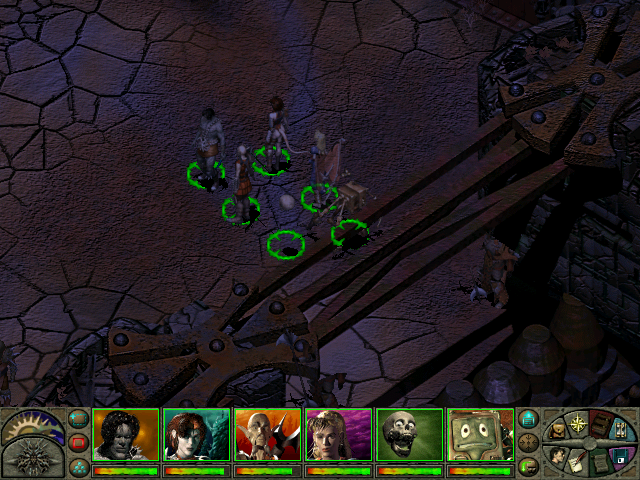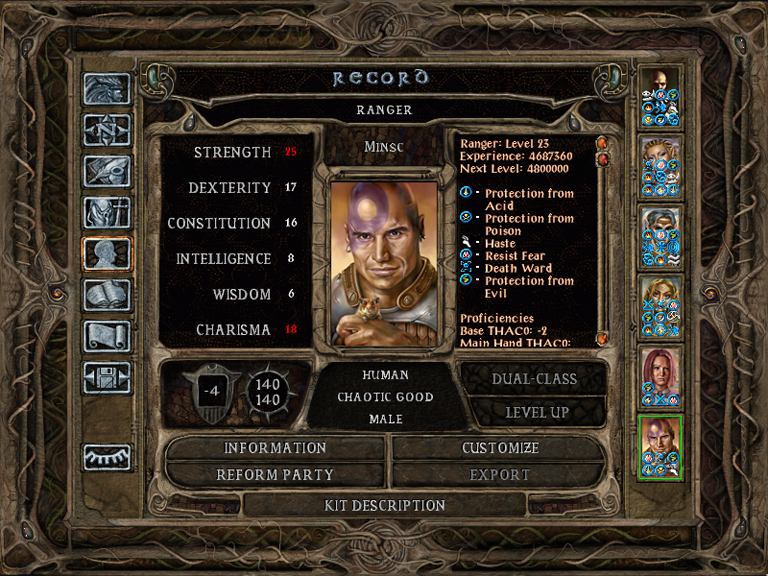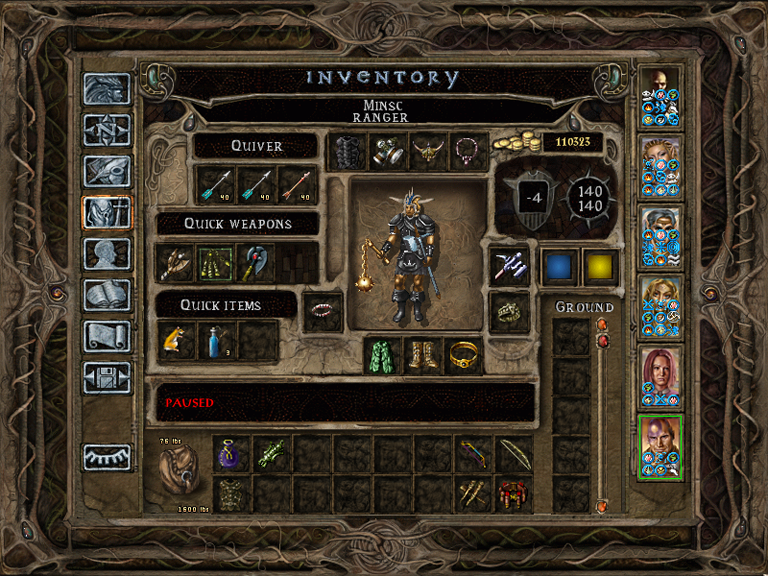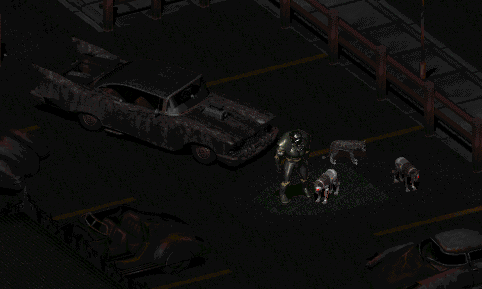What I'm about to describe is a situation everyone's been in – probably more than once: you watch a movie; you like the movie; you say as much, out loud, to people who also saw it; opinions fall within a narrow circumference of "I (did/didn't) like it, but..." Except! Except for That One Gal (or Guy; the gender's unimportant – so long as they're wearing glasses). She reaches to the bridge of her nose, touches that middle span that holds the lenses together and pushes her glasses up with a "click" (there is an audible "click"; and the lenses catch the light, obscuring her eyes for an instant – because this is now a Functioning Anime Trope).
"Meh" she murmurs wearily "I thought the book was better."
Cue counter-arguments, rebuttals, extensive justifications and a modicum of good-natured scoffing as we fade out on Another Lively Evening in a random slice of life comedy...
But the tiny kernel of truth that every trope or cliché grows out of remains. No – not that books are better. That the two media handle their subject matter in a completely different way and should not be compared to begin with.
Movies are for viewers: people of limited imagination and patience who want to be spoon-fed ready-made set pieces that reflect somebody else's interpretation of a given scenario. Viewers like escapism, sure, but they don't want to live in their fantasy: they just want to pop in for a quick visit, then go on with their Real Lives. They never get to find out (except in the basest terms) why a character does what they do, or what they might be thinking at a given point in time, because (save for the Ubiquitous Flashback) movies are ill-equipped to deal with anything subcutaneous. Movies are statements. I'm a replicant. That's no moon. These aliens sure slobber a lot.
Books, on the other hand, are for dreamers: people who (in their mind) construct their own interpretation of stated facts. Dreamers are willing to invest themselves in their escapist fantasies and have no qualms about putting in the time and effort to construct them. Few viewers would sit through a 5 hour movie, but no dreamer will bat an eye at a doorstop of a book that will take them 40 hours to finish.
Thus the key difference between the two is the same reason why older, "classical" games are ones we tend to remember fondly, years later, while their glamorous, ray-traced descendants eek out a few months before being surpassed by the next, slightly more shiny thing: namely – room for interpretation.

See, in the days before Nvidia was cranking out a new, cutting-edge GPU every year, games could not rely on lifelike graphics and breathtaking effects to please their audience. All those "classic" titles we remember so fondly like Baldur's Gate 2, Planescape: Torment, Final Fantasy VII or Fallout? While their graphics were an undeniable achievement at the time, they were insufficient for the grand visions their creators intended to depict. And yet, their appeal persists decades later because – with cutting edge graphics off the table – developers had to focus on what actually makes a game memorable and worthwhile: substance.
Since no one company could outperform another artistically, the stories of their games had to be compelling, their characters fully developed and their plots twisty enough to keep an audience invested. And, boy – did those old, wily devs come up with some memorable twisties! General impressions aside, I can barely remember anything out of the 100+ hours I wasted on Kingdoms of Amalur months ago. Some of the lead characters, maybe, in the broadest of terms... Torment, though? Baldur's Gate 2? I can quote entire dialogue trees verbatim, or point you to bit-part NPCs around town like it was yesterday (and not, in fact, more than 20 years ago).

Annah, Morte, Dak'kon, Fall-From-Grace, Nordom; Jon Irenicus, Saemon Havarian, Jaheira, Minsc (and Boo, of course); Imoen, Korgan, Aerie, Viconia, Mazzy, Haer'Dalis; turnip-obsessed Jan or poor, conflicted Yoshimo... These characters were so fleshed-out, so well-written, that they became an integral part of this pig's memory (a part they will likely never vacate). All thanks to writers who had the imagination (and the time) to come up with someone memorable, original, and unsullied by external pressures to conform to some tried "that'll sell" stereotype. And, most importantly perhaps, not limited by an artist's detailed 3D rendering of what the character looked like (which is not to say they were left entirely to the imagination, but between sparse VO work, a portrait and a paper doll, there was a lot more fertile ground for the imagination).

As I briefly mentioned in my Alpha Protocol review, there is no substitute for good design. Either you put in the time to give something depth, or have to depend on gimmicks to keep your audience distracted from the fact that the beautiful scene you've rendered is actually a flat canvas (I'm thinking, specifically, of Fallout 3 here: "Post-apocalyptic Morrowind? Nonsense. Morrowind didn't star (dramatic pause) Liam Neeson!").

Show folks a picture, and they may criticize its technical execution, proportions, lighting, shading – overall production values. But no matter how extensive the critique, at no point will somebody call the validity of its very being into question. A picture simply exists. It's there, it is what it is: a product – preprocessed and ready for consumption.
Given the same scenario (an audience presented with a thing) and a written description of a character, the results you'll get will vary wildly. Sure, if there's a typo, or if the sentence structure is wonky, the more attentive participants are bound to point it out; but on a more basic level, how they interpret the passage can run the gamut. Because writing is an intermediary medium: it gives us a broad outline to form an opinion, but does not at any time specify what that opinion should be.
Years ago (by which I mean decades), as a wee piglet, I was thrilled to get my trotters on a printed (having to specify that makes me sad) copy of the Amber Diceless RPG sourcebook. Thrilled, because Roger Zelazny is my favorite writer, The Chronicles of Amber – my favorite series of books – and the idea of fooling around in his world enough for my tail to uncurl in anticipation. What I was particularly looking forward to were the renderings of the series' iconic Trumps (tarot cards; having to specify that makes me sadder still) depicting Amber royalty.
I think anyone who read through the books remembers the point in Nine Princes, when Corwin shuffles through the pack for the very first time, describing his brothers and sisters as sketched by good, old (mad) Dworkin. I know I've carried my mental image of the Amber princelings since first reading those passages... And guess what? My thrill of finally seeing them depicted quickly turned to utter disappointment, because not a single one of the artist's interpretations fit what I imagined my favorite characters were like.
No graphics package in existence will ever surpass our imaginations. Not because what we can imagine has a better pixel count, or a more advanced shader — but because what we come up with is ours: something mere graphics simply cannot account for...
So – what's my point? Dare I suggest regressing to text-based adventures in an era of unparalleled graphics? (though – in terms of focusing on writing, at least – not the worst idea I've heard). Of course not. Graphics may be no substitute for substance, but they can still take your breath away; they still serve a purpose.
But capping graphics for new games at a level that's "sufficient" instead of making them the developers' primary focus would definitely be a step in the right direction. As impressive as current visuals are, I think we have reached a plateau of sorts. Graphics can now approximate real life to such an extent that TV stations cannot tell them apart (in my "research" for this article, I found at least 5 instances where TV news stations used computer game graphics for real world stories – with the general public none the wiser).
Putting a greater focus on good, solid stories that are Anatomically Fulfilled (i.e. have arms, legs, wiggly tails and all the rest of it); have memorable characters, or (and it's a crazy notion, but bear with me) involve new gameplay mechanics that do not Focus Exclusively On Shooting could do wonders for a more diverse, more interesting and indepth gaming experience.
Mind you, companies would have to pay their writers a decent living wage, hire passionate people who want to Make Something Exceptional (instead of just earning a paycheck); and – oh, yeah – give them time to actually finish their work. I know the pace the world works at keeps increasing, but – come on: there has to be an upper limit. Nobody deserves to suffer a nervous breakdown, or be away from their family for months at a time for a game. I mean, I love games – I do. But, on the whole, they are Not At All Important. They may be my favorite form of entertainment, but entertainment is all they are. Playing a game that made some poor dev burn out doesn't make me enjoy it more; if anything, it just makes me sad.
So, y'know – cut it out! Stop pushing people for reasons that don't matter. Postpone a release, miss a deadline. If the product is good, people will still buy it – no matter when it comes out. </rant>
Lastly, crafting games that Have A Point (beyond, y'know, finishing them) could be a marked improvement on current trends. Not sacrificing artwork for the sake of substance – just making them equal partners in the production; and making sure that the less glamorous aspects of game design get the attention they deserve (to paraphrase Yama, from Lord of Light "none sing hymns to Q&A, but, oh – to be without it").
Visuals are appealing and humans are visual creatures. I get it. But, with the increasing crop of shallow battle royale games (like Fortnite or Overwatch); and brainless shooters that feign deep world-building (like the lamentable Anthem or Destiny), humans are increasingly becoming a society of "what" rather than "why"; eschewing imagination or thought for the sake of lavish visuals.
And, yeah, I know discussing substance in an article about games may seem out of place, but every medium has its outliers. Deep movies and shallow books are a thing. All I suggest is that developers ensure Games Of Substance – well-written games that let us use our imagination – get equal representation on the market... (more Disco Elysium, please; but — in your own time...)
And if one of 'em could be made by a big studio with a million-dollar budget (preferably before I've oinked my last), well—
That would make for one happy, happy day.
Pig Recommends:
-
if you have never played (or heard of) Planescape: Torment, Baldur's Gate 2, Fallout 1 and 2, or Final Fantasy VII and VIII, well, the good news is – you have your whole life ahead of you! </joking> seriously, though, coming up with reasons for someone who likes RPGs to play the aforementioned games is like trying to justify Rodin's bronzes to an art critic; despite their age, those titles are the pantheon of RPGs that every game since has tried to live up to; if you haven't played them already, give them a go; the chances of walking away disappointed are practically nonexistent;
-
if you have played Torment and liked it, Disco Elysium is a unicorn of a stat-driven, adventure-RPG that is it's closest (if spiritual) descendant (and I state that fully aware of the fact that an actual Torment sequel exists); you play an amnesiac tasked with solving a two-fold mystery in a world that is, at once, mundanely commonplace and as alien and strange as anything the planes have ever conjured; if you don't mind reading (a lot), Elysium is a wonderful tale full of meaningful choice, astounding introspection, and even a bit of stilted karaoke; it remains my one glimmer of hope that determined studios will continue to produce awe-inspiring content despite the general downward trend of the gaming industry as a whole;
-
literally anything by Roger Zelazny (books); while I will admit to being a devoted fan (and thus biased to no end), Zelazny is an easy author to defend; while other writers desperately clung-on to their One Good Idea, churning out increasingly irrelevant sequels, My Man was skipping across award-winning concepts like an expertly cast stone across a very wide pond (on more than one occasion, two of his stories or books would be competing with each other for the same award); from the widely-known (The Chronicles of Amber, Lord of Light, This Immortal, My Name is Legion, Doorways in the Sand) to the relatively obscure (Damnation Alley, A Night in the Lonesome October, Roadmarks, Changeling or Dilvish the Damned); from short-stories to books, science-fiction to fantasy – every single one of his works has the same, delicious mix of mellifluous high-art and streetwise common sense; if you enjoy science-fiction, fantasy, mythology or adventure, give old Roger a try; just be wary of Jack of Shadows – it's grim and hits like a ton of bricks;
